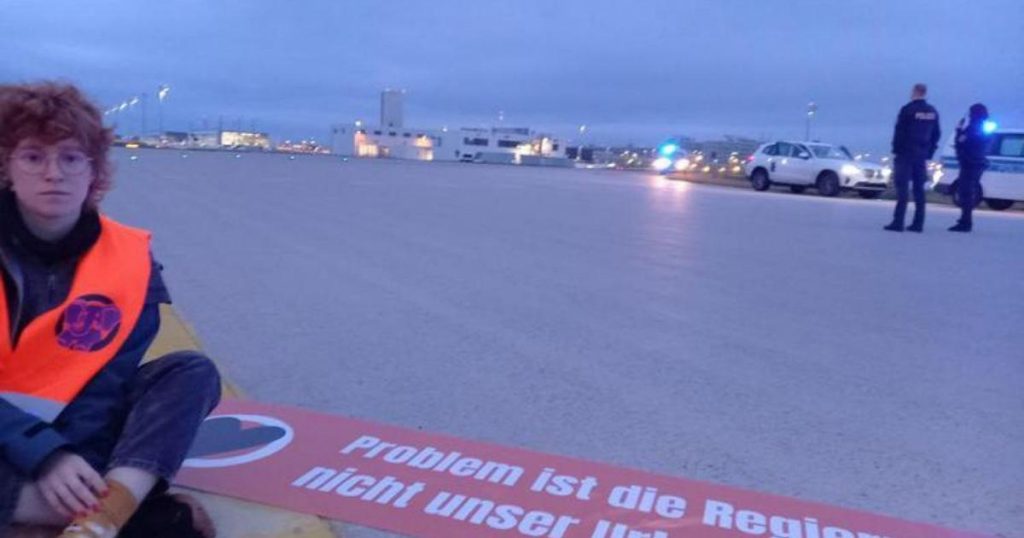The latest blitz at the Munich airport in Germany forced the cancellation of all flights. According to the German newspaper Die Welt, several climate activists entered the airport area in the early morning, cut through a fence, and glued themselves to the tarmac. This action blocked two taxiways leading to the two runways, causing a disruption in airport operations.
The activists involved in the protest were reportedly part of a larger group advocating for climate action. By targeting the airport, they aimed to draw attention to the environmental impact of air travel and the role of airports in contributing to carbon emissions. The disruptive action was intended to disrupt the normal functioning of the airport and raise awareness about the urgency of addressing climate change.
The airport authorities were forced to cancel all flights as a result of the blockage caused by the activists. This caused significant inconvenience for passengers and airlines, as well as financial losses for the airport and airlines operating at Munich. The activists’ actions were successful in causing disruption and bringing attention to their cause, but they also faced criticism for the inconvenience caused to travelers.
The protest at the Munich airport highlights the growing trend of direct action by climate activists to draw attention to the urgent need for environmental protection. By targeting key infrastructure such as airports, activists aim to disrupt business as usual and force authorities to take action on climate change. While such actions can be controversial and disruptive, they serve to amplify the message of the climate movement and push for stronger action on reducing carbon emissions.
The airport authorities were in discussions with the activists to address their concerns and resolve the situation peacefully. Negotiations were underway to remove the blockades and allow flights to resume as soon as possible. The incident at Munich airport underscores the challenges faced by authorities in balancing the right to protest with the need to maintain public safety and ensure the smooth functioning of critical infrastructure.
Overall, the blitz at Munich airport was a dramatic and disruptive demonstration of the urgency of addressing climate change. While the activists’ actions caused inconvenience and financial losses, they succeeded in drawing attention to the environmental impact of air travel and the need for greater action to reduce carbon emissions. The incident highlights the growing pressure on governments and businesses to take decisive action on climate change and transition to more sustainable practices in the aviation industry.














